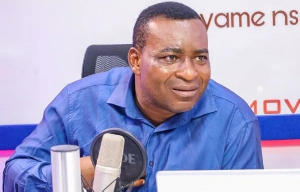Lome (Togo) - The West African Gas Pipeline Project will accelerate regional economic growth and development through the provision of clean and reliable energy.
It will also help break artificial barriers, promote regional integration and stimulate private investment within the West African sub-region. Kofi Asante Okae, External Affairs Manager of the West African Pipeline (WAGP), stated these when he gave an overview and potentials of the project at the third ECOWAS Trade Fair in Lome, Togo.
He said the project would stimulate job creation and help reduce the cost of power generation within the ECOWAS States. Okae, using the Takoradi Thermal Plant as an example, said the current oil price of between 30 and 35 dollars, with an average cost of 24 dollars per barrel over the past 20 years for the generation of power, would reduce to between 16 and 18 dollars per barrel using gas from WAGP in the initial stages, adding that the bill for using WAGP gas would decrease as demand increased.
Okae said the premier objective of the project was to transport natural gas from the Niger Delta of Nigeria into viable markets in Benin, Togo and Ghana. He said WAGP was committed to the observance of world-class environmental impact assessment in the countries through which the pipeline would pass and adhere to high health, safety and other standards using World-Class international and local consultants in the implementation of the project.
The WAGP was also committed to the establishment of long-term and mutual beneficial partnership with host communities and would use proactive stakeholder and community consultation to enhance project benefits for the communities, he said.
This would enable local knowledge and conditions to influence project designs, construction and operation and ensure that community development projects were designed based on socio-economic baseline study and needs assessments.
Okae said a Company to be known as WAPCO, would be formed to own, build and operate the WAGP, which is a public-private partnership with Chevron holding 36 per cent shares, Nigeria National Petroleum Corporation (NNPC), 25 per cent, Shell, 18 per cent, Volta River Authority (VRA) of Ghana, 16.3 per cent Sobe Gas of Benin and Soto Gas of Togo 2 per cent shares each.
The project covering a length of 620 kilometres, with 560 kilometres offshore is estimated to cost between 450 - 500 million dollars. Eighty-five per cent of the gas volume would be used for power generation, with 15 per cent for industrial application.
Under the auspices of ECOWAS, Ghana, Benin, Togo and Nigeria signed the agreement in 1995 and commissioned an independent feasibility studies in 1999, which concluded that WAGP was technically feasible and economically viable.
In January, this year Presidents John Agyekum Kufuor, Gnassingbe Eyadema of Togo, Mathew Kerekou of Benin and Olusegu Obasanjo of Nigeria signed the international treaty on WAGP at the ECOWAS Summit in Dakar, Senegal.
Business News of Wednesday, 12 March 2003
Source: GNA












